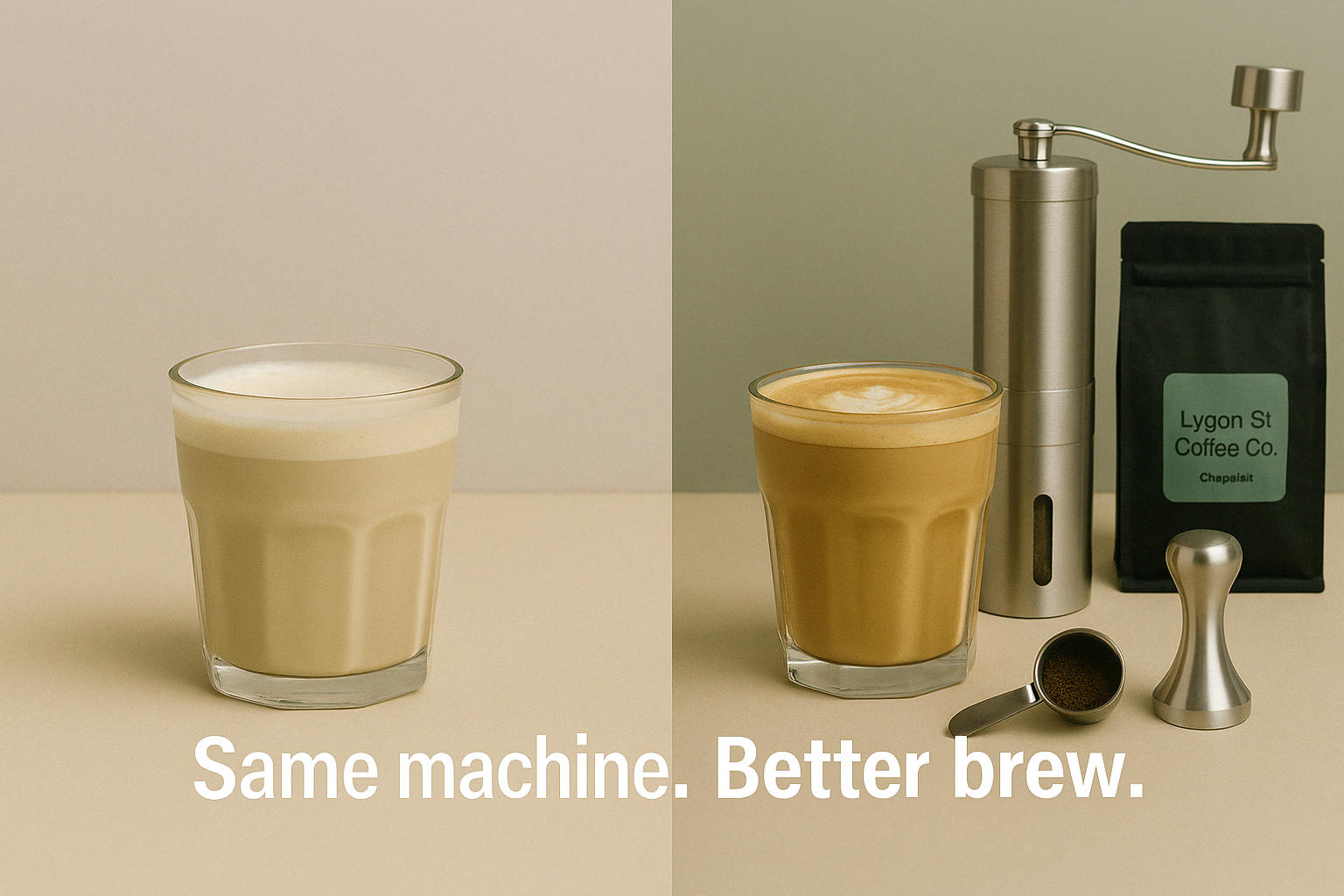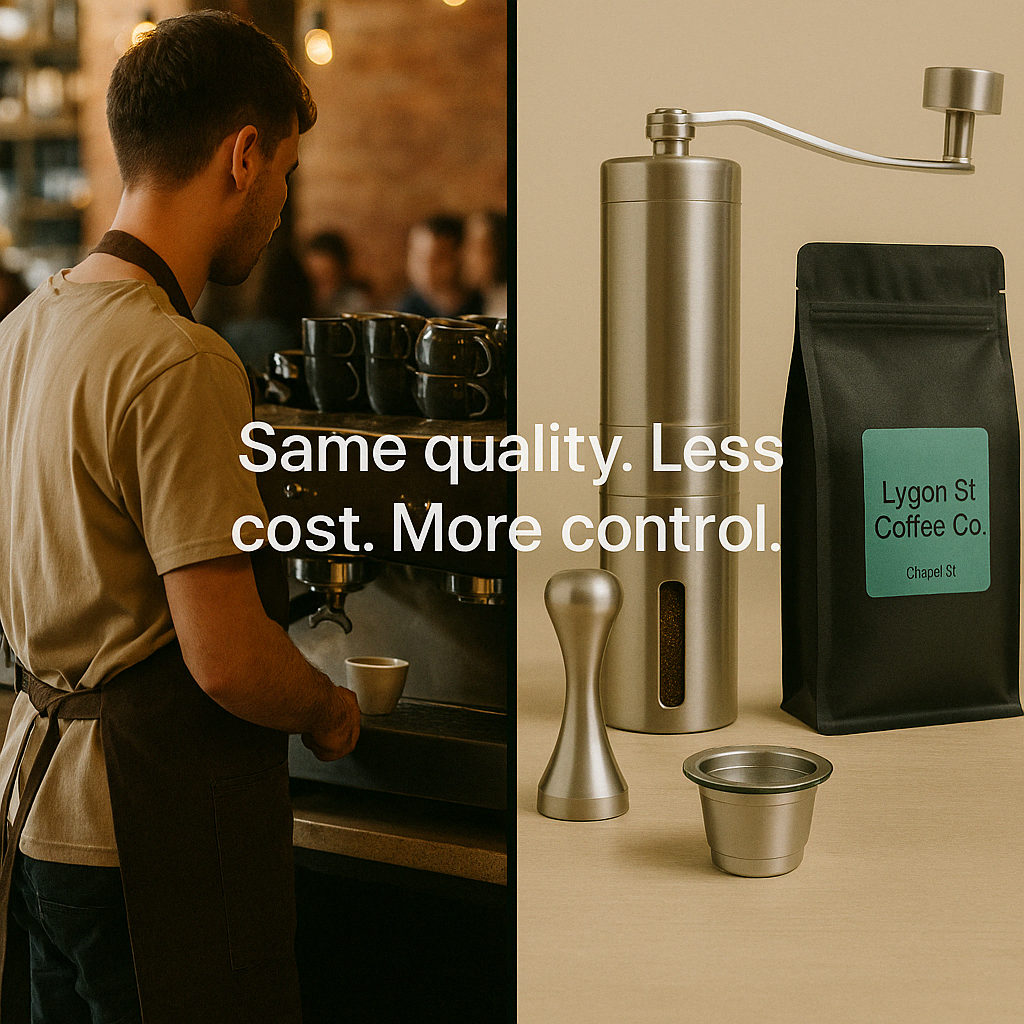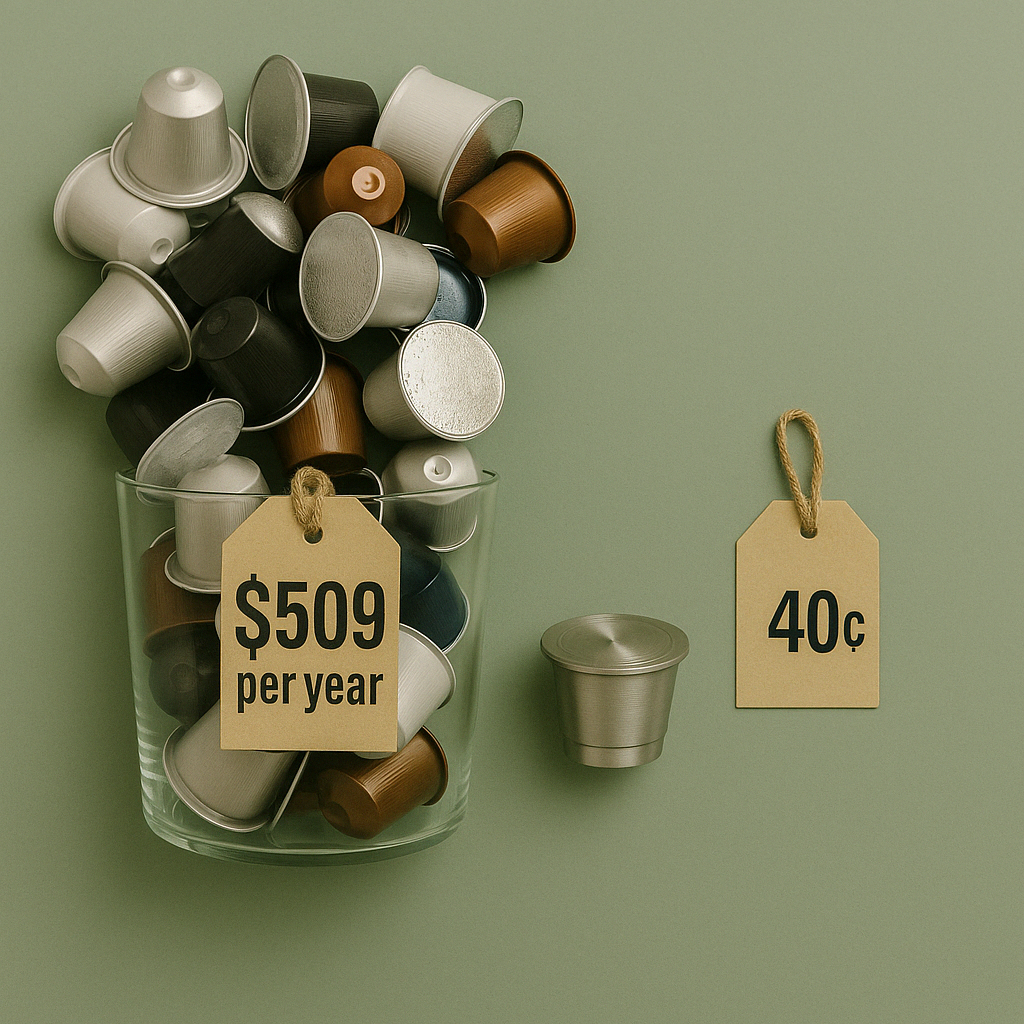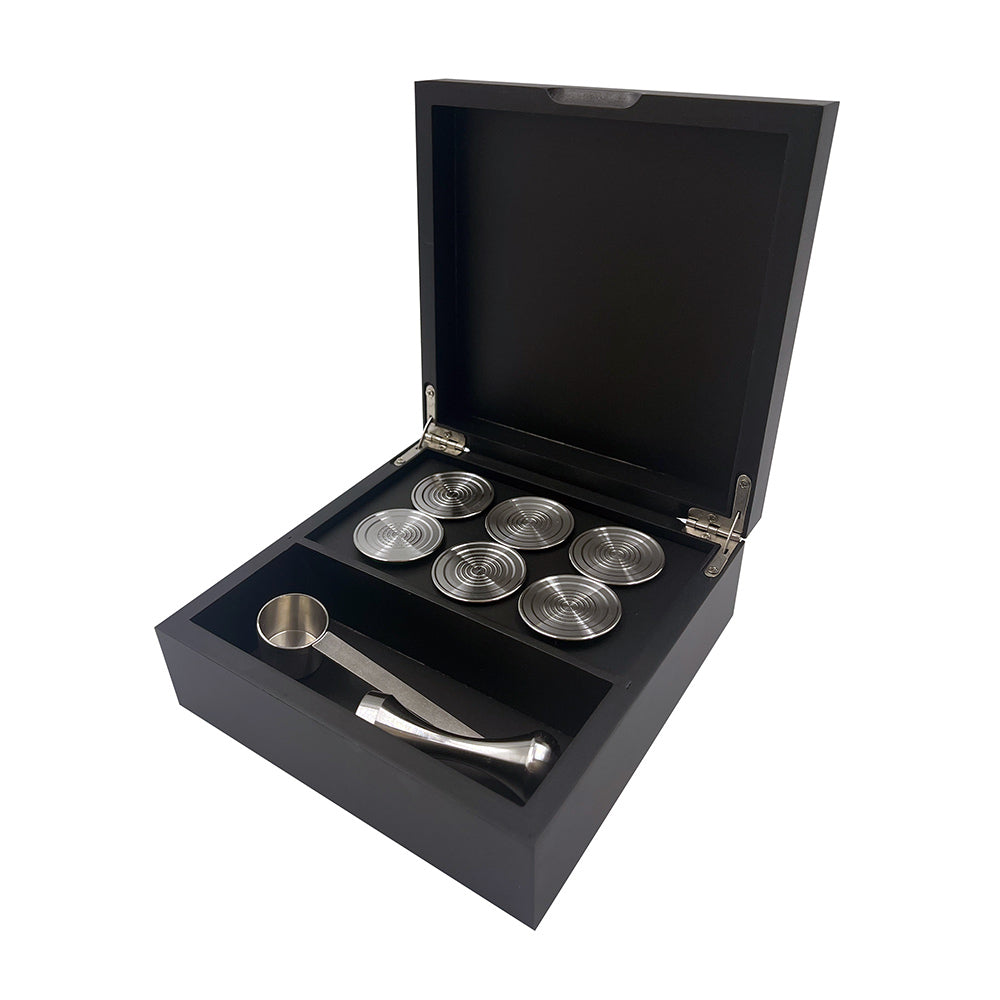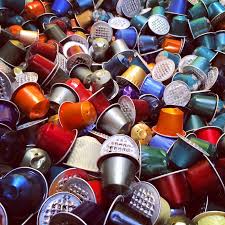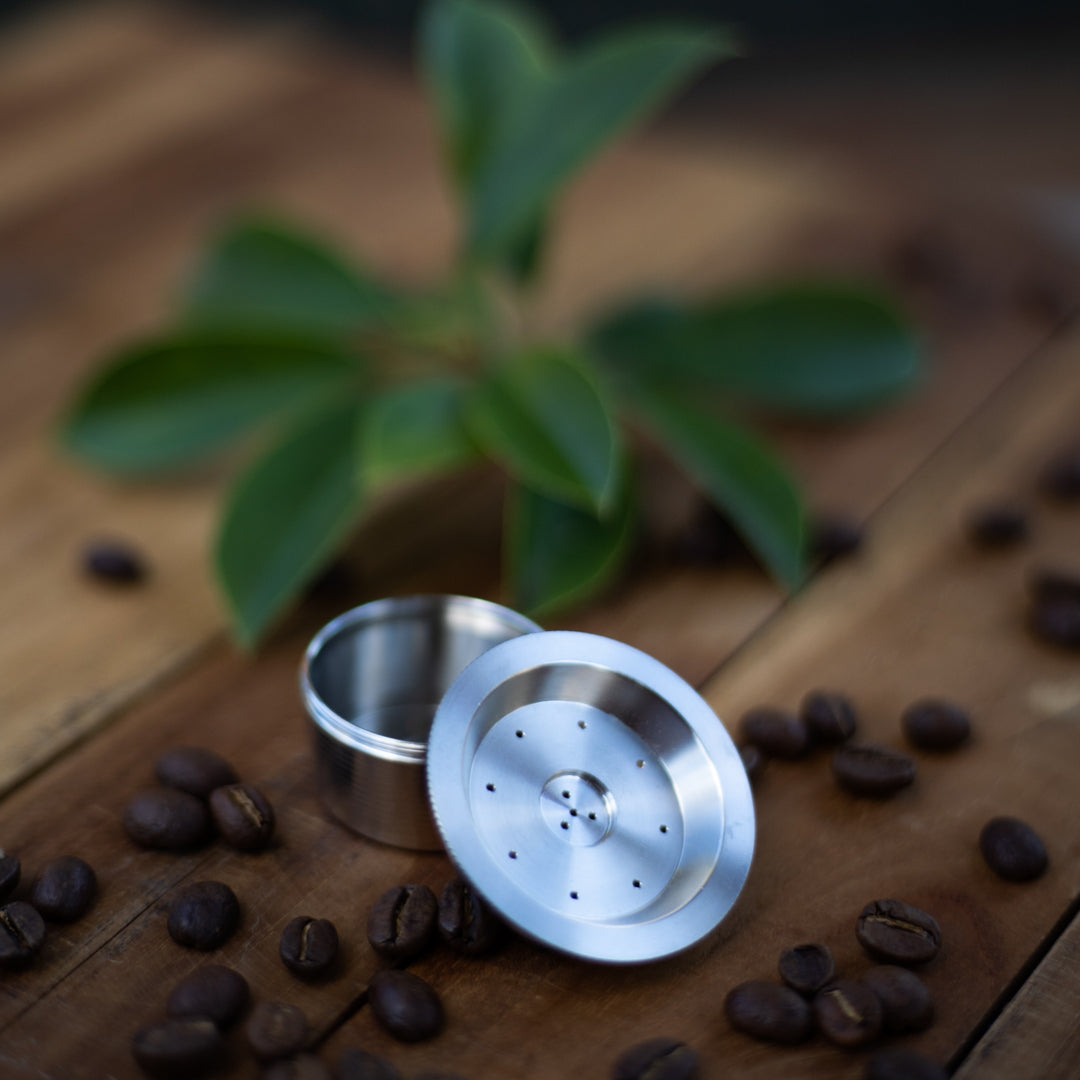- April 15, 2025
5 mistakes people make with reusable coffee pods (and how to fix them)
Reusable pods are brilliant — but they’re not bulletproof. Here are 5 common mistakes to avoid if you want smooth, café-quality coffee at home.
- April 15, 2025
How to Brew Barista-Quality Coffee at Home – Using Your Pod Machine
Pod machines get a bad rap — but with the right tools and a few simple tweaks, you can brew café-style coffee without leaving your kitchen.
- April 15, 2025
What’s the Real Cost of Coffee Pods? (Hint: It’s Not Just Your Wallet)
Think single-use coffee pods are cheap? Think again. Learn how a reusable pod can save you over $500 a year — and a mountain of waste.
- July 26, 2024
Why you don't get Crema from a pod coffee machine
- July 17, 2024
- July 12, 2024
Cleaning your coffee pod machine
- July 02, 2024
How to Choose the Best Coffee for Your Reusable Pods
- July 02, 2024
The Environmental Impact of Single-Use Coffee Pods vs. Reusable Pods
- July 02, 2024
7 Misconceptions about reusable pods


